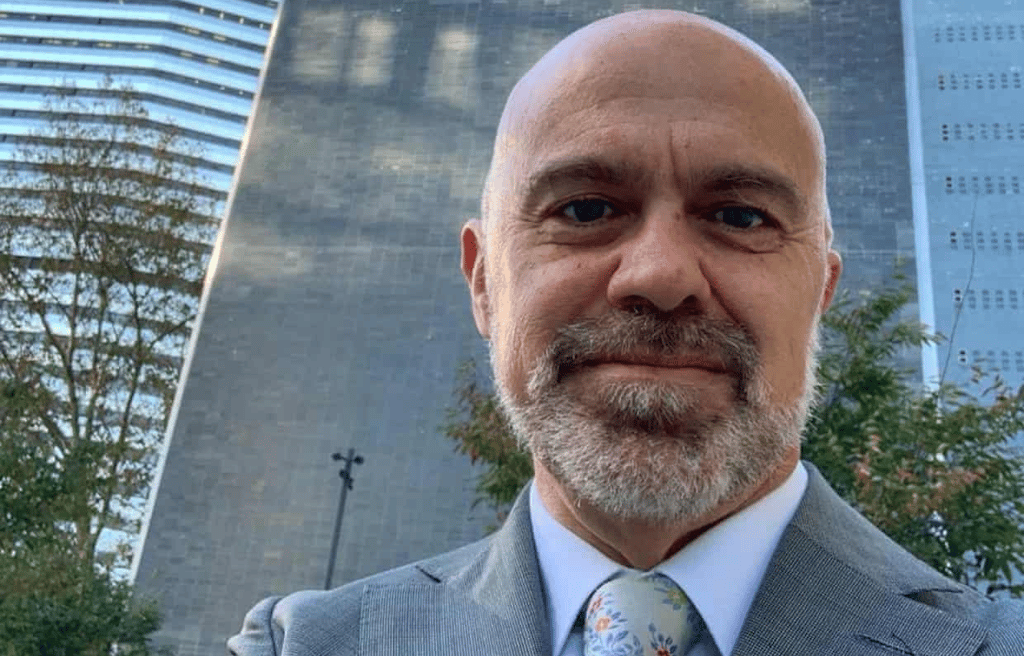Mark Baxter’s Class Journey: From Concealment to Catalyst for Inclusion
Less than half of ‘class marginalised workers’ were offered career development in the past year in Australia, compared to 76% of ‘privileged’ employees, a new study suggests
BUSINESS OWNERS


The corridors of corporate Australia have long carried an unspoken weight: where you came from matters more than you might know. For decades, Mark Baxter concealed the roots that shaped him from a regional Victorian state school and a childhood supported by a widow's pension because he believed disclosure would condemn him to the wrong “networks.” His decision to mask his class background was not one of convenience; it was a survival tactic in environments where privilege often masquerades as competence.
Raised by a single mother in modest circumstances and educated at a public school in regional Victoria, Baxter chose to avoid talking about his upbringing for nearly thirty years. He observed how peers, seemingly unaware of the signal they sent, would say things like, “You went to a state school? Well, we won’t hold that against you.” It was coded bias, invisible yet powerful proof that, in many workplaces, class remains an invisible barrier. His experience speaks volumes about the “class ceiling” that continues to shape careers in Australia.
Now, Baxter is turning that once-hidden narrative into a lever for systemic change. No longer staying silent, he mentors employees from socially disadvantaged backgrounds and LGBTQ+ communities. He co-founded and chairs the Australian LGBTQ+ Board & Executive Inclusion initiative, championing board diversity with purpose and intentionality. His leadership extends beyond personal recovery; it’s actively reshaping access and representation from the top down.
The urgency of his mission is underlined by Diversity Council Australia’s (DCA) Class Inclusion at Work report. The findings are stark: only 44 percent of “class marginalised” workers, those in the lowest income quintile, were offered career development in the past year, compared with 76 percent of their privileged counterparts. And while only 4 percent of surveyed leaders reported class marginalisation themselves, 40 percent identified as class privileged. Yet less than a quarter of leaders recognized social class as a meaningful factor in workplace inequality.
These numbers underscore a persistent contradiction in Australian workplaces: we claim equal opportunity, yet reinforce inequality through omission. Those most affected feel the dissonance daily. Class-marginalised workers report lower belonging and higher discrimination. Only 22 percent feel valued in their teams, compared to 41 percent among privileged peers.
There is a cultural myth in Australia that we are a “classless” society, a belief that class distinctions don’t matter here. But as DCA’s research shows, that myth only deepens inequality. Networking, critical for progression, often happens after hours or over discretionary spending opportunities that class-marginalised workers may have to forgo in favor of essential household priorities.
Baxter’s journey reframes that myth through lived experience. He recounts being told he was “not quite the right person for this role,” a phrase that, in context, thinly veiled exclusion from social spheres whose membership determined career fate. He could never disentangle whether barriers stemmed more from his class or his LGBTQ+ identity, but the intersection made the climb steeper regardless.
This is where leadership must recalibrate. Transparency about class, proactive sponsorship, and internal policies that broaden access are not generous extras; they are essential structural corrections. For TMFS, the lesson is clear: inclusion must be multilayered if it is to be genuine. Class is not an academic debate. It is a market inefficiency, a loss of talent, and a human cost disguised by polite exclusion.
Baxter’s shift from silence to advocacy elevates narrative into strategy. His decision to mentor and lead change is not sentimental. It is strategic. Because when class awareness is embraced, not erased, organisations unlock new perspectives, loyalty, and innovation.
It is time to seed more stories like his into corporate DNA. When diversity initiatives overlook class, we force upward mobility to be conditional, not equitable. Recognition of class in diversity frameworks is overdue.
Mark Baxter shows us how to step into that change, not by demanding sympathy, but by demanding transparency. His journey teaches us that when we make space for difference, real difference, rooted in experience, we shape not only organisations but the society they serve.
In Australia, the class ceiling may still stand, but voices like Baxter’s offer the tools to dismantle it. It is up to leadership to listen and act.
All rights belong to their respective owners. This article contains references and insights based on publicly available information and sources. We do not claim ownership over any third-party content mentioned.


